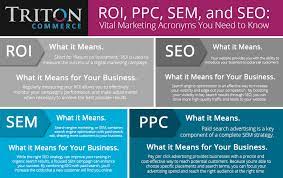Online Marketing for Law Firms: How to Boost Your Firm’s Online Presence
In today’s digital age, online marketing has become an essential tool for businesses of all sizes and industries – including law firms. With more people turning to the internet to find legal services, it’s crucial for law firms to have a strong online presence to attract potential clients and stay ahead of the competition.
Here are some tips on how law firms can effectively market their services online:
Develop a Professional Website
Your website is often the first impression potential clients will have of your firm. It’s important to have a professional-looking website that is easy to navigate and provides relevant information about your services. Make sure your contact information is easily accessible, and consider adding testimonials from satisfied clients.
Optimize Your Website for Search Engines
Search engine optimization (SEO) is the process of improving your website’s visibility on search engines like Google. By incorporating relevant keywords and phrases into your website content, you can increase the likelihood that potential clients will find your firm when searching for legal services in your area.
Utilize Social Media
Social media platforms like Facebook, Twitter, and LinkedIn can be powerful tools for promoting your law firm and engaging with potential clients. Share relevant articles and blog posts related to your practice areas, and consider running targeted ads to reach specific demographics.
Create Quality Content
Creating quality content on your website or blog can help establish you as an authority in your field and provide valuable information to potential clients. Consider creating informative articles or videos on topics related to your practice areas.
Monitor Your Online Reputation
It’s important to monitor what people are saying about your firm online – both positive and negative feedback. Responding promptly and professionally to negative reviews or comments can help mitigate any damage done to your reputation.
Consider Pay-Per-Click Advertising
Pay-per-click (PPC) advertising allows you to target specific keywords and demographics to reach potential clients. While it can be more expensive than other forms of online marketing, it can also yield quick results and help you stay ahead of the competition.
In conclusion, online marketing is a crucial component of any law firm’s marketing strategy in today’s digital age. By developing a professional website, optimizing for search engines, utilizing social media, creating quality content, monitoring your reputation, and considering PPC advertising, you can effectively market your services and attract potential clients.
8 Common Questions About Online Marketing for Law Firms: Strategies, Tools, and Mistakes to Avoid
- How can law firms use online marketing to reach potential clients?
- What are the most effective strategies for online marketing for law firms?
- How can law firms leverage social media to market their services?
- What types of content should law firms create for their online marketing campaigns?
- How can law firms measure the success of their online marketing efforts?
- What are the best tools and platforms for managing an online legal marketing campaign?
- How much should a law firm budget for its online marketing efforts?
- What are some common mistakes that law firms make with their online marketing campaigns?
How can law firms use online marketing to reach potential clients?
Law firms can use online marketing to reach potential clients in a variety of ways, including:
Search Engine Optimization (SEO)
By optimizing their website for search engines, law firms can increase their visibility in search results when potential clients are searching for legal services. This involves incorporating relevant keywords into website content, optimizing meta tags, and building high-quality backlinks to the website.
Social Media Marketing
Social media platforms like Facebook, Twitter, and LinkedIn can be powerful tools for law firms to promote their services and engage with potential clients. By sharing relevant content and engaging with followers, law firms can build brand awareness and establish themselves as authorities in their field.
Pay-Per-Click (PPC) Advertising
PPC advertising allows law firms to target specific keywords and demographics with ads that appear at the top of search engine results pages or on social media platforms. This can be an effective way to quickly reach potential clients who are actively searching for legal services.
Email Marketing
Email marketing campaigns can be an effective way for law firms to stay in touch with current and potential clients. By sending regular newsletters or updates about firm news or events, law firms can build relationships with subscribers and keep their firm top-of-mind.
Content Marketing
Creating high-quality content like blog posts, articles, or videos related to the firm’s practice areas can help establish the firm as an authority in their field and provide valuable information to potential clients. Sharing this content on social media or through email marketing campaigns can help attract new leads.
In conclusion, online marketing offers a range of strategies that law firms can use to reach potential clients and grow their business. By leveraging SEO techniques, social media platforms, PPC advertising campaigns, email marketing campaigns, and content marketing strategies, law firms can effectively market their services online and attract new clients.
What are the most effective strategies for online marketing for law firms?
There are several effective strategies for online marketing for law firms, including:
- Develop a professional website: A well-designed and user-friendly website is essential for any law firm’s online presence. It should provide detailed information about your services, showcase your expertise, and make it easy for potential clients to contact you.
- Optimize your website for search engines: Search engine optimization (SEO) can help your website rank higher on search engine results pages, making it easier for potential clients to find you when they search for legal services.
- Utilize social media: Social media platforms such as Facebook, Twitter, and LinkedIn can be powerful tools for promoting your law firm and engaging with potential clients. Share relevant content related to your practice areas and consider running targeted ads to reach specific demographics.
- Create quality content: Creating informative articles or videos on topics related to your practice areas can help establish you as an authority in your field and provide valuable information to potential clients.
- Monitor your online reputation: It’s important to monitor what people are saying about your firm online – both positive and negative feedback. Responding promptly and professionally to negative reviews or comments can help mitigate any damage done to your reputation.
- Consider pay-per-click advertising: Pay-per-click (PPC) advertising allows you to target specific keywords and demographics, yielding quick results and helping you stay ahead of the competition.
- Use email marketing: Email marketing campaigns can be an effective way to stay in touch with existing clients and keep them informed about new services or updates from the firm.
By implementing these strategies effectively, law firms can improve their online visibility, attract more potential clients, and ultimately grow their business.
How can law firms leverage social media to market their services?
Social media has become an essential tool for businesses of all sizes and industries to connect with potential clients and promote their services, and law firms are no exception. Here are some ways law firms can leverage social media to market their services:
Establish a Strong Presence
The first step in leveraging social media is to establish a strong presence on the platforms where your potential clients are active. This may include Facebook, Twitter, LinkedIn, Instagram, or other platforms. Make sure your profiles are complete and include relevant information about your firm.
Share Relevant Content
Sharing relevant content related to your practice areas can help establish you as an authority in your field and provide value to potential clients. Consider sharing informative articles or blog posts related to legal news, changes in legislation, or common legal issues that people may face.
Showcase Your Expertise
Social media provides an opportunity for law firms to showcase their expertise in specific practice areas. Consider sharing case studies or success stories that highlight how your firm has helped clients in the past.
Engage with Potential Clients
Social media also provides an opportunity for law firms to engage with potential clients directly. Responding promptly and professionally to comments or questions can help build trust and establish a relationship with potential clients.
Run Targeted Ads
Social media platforms offer targeted advertising options that allow you to reach specific demographics based on factors such as age, location, interests, and more. Consider running targeted ads to reach potential clients who may be interested in your services.
Showcase Your Firm Culture
Social media also provides an opportunity for law firms to showcase their culture and values. Sharing photos or videos of team members participating in community events or highlighting pro bono work can help humanize your firm and build trust with potential clients.
In conclusion, social media provides law firms with a powerful tool to connect with potential clients, showcase their expertise, and build trust. By establishing a strong presence, sharing relevant content, engaging with potential clients, running targeted ads, and showcasing your firm culture, you can effectively leverage social media to market your services.
What types of content should law firms create for their online marketing campaigns?
Law firms can create a variety of content for their online marketing campaigns to attract and engage potential clients. Here are some types of content that law firms can consider creating:
- Blog Posts: Blogging is an effective way to provide valuable information to potential clients, establish your firm as an authority in your field, and improve your search engine rankings. Law firms can create blog posts on topics related to their practice areas, such as recent legal developments, frequently asked questions, and case studies.
- Infographics: Infographics are visual representations of complex information that can help simplify legal concepts for potential clients. Law firms can create infographics on topics such as the legal process, common legal issues, and statistics related to their practice areas.
- Videos: Videos are a powerful tool for engaging potential clients and providing information in an easily digestible format. Law firms can create videos on topics such as client testimonials, interviews with attorneys, and educational videos on legal topics.
- E-books and Whitepapers: E-books and whitepapers are longer-form content pieces that provide in-depth information on specific legal topics. Law firms can create e-books or whitepapers on topics such as estate planning, business law, or personal injury law.
- Webinars: Webinars are live or recorded presentations that allow law firms to connect with potential clients in real-time and provide valuable information on specific legal topics.
- Social Media Posts: Law firms can use social media platforms like Facebook, Twitter, LinkedIn, and Instagram to share blog posts, infographics, videos, e-books or whitepapers, webinars or other relevant content with their followers.
By creating a variety of high-quality content for their online marketing campaigns across different formats and platforms law firms can attract potential clients while establishing themselves as experts in their field.
How can law firms measure the success of their online marketing efforts?
Measuring the success of online marketing efforts is essential for law firms to determine whether their strategies are effective and to make necessary adjustments. Here are some ways that law firms can measure the success of their online marketing efforts:
Website Traffic
One way to measure the success of your online marketing efforts is by tracking website traffic. Tools like Google Analytics can provide valuable insights into the number of visitors to your website, how they found your site, and how long they stayed on each page. An increase in website traffic can indicate that your online marketing efforts are driving more potential clients to your site.
Search Engine Rankings
Search engine rankings are another important metric for measuring the success of your online marketing efforts. By tracking where your firm ranks in search engine results pages (SERPs) for relevant keywords and phrases, you can determine whether your SEO efforts are effective. Improving search engine rankings can lead to increased visibility and more potential clients finding your firm.
Social Media Engagement
Law firms can also measure the success of their social media marketing efforts by tracking engagement metrics like likes, shares, comments, and followers. By monitoring these metrics, you can determine which types of content resonate with your audience and adjust your social media strategy accordingly.
Lead Generation
Ultimately, the goal of online marketing for law firms is to generate leads – potential clients who are interested in hiring your services. Tracking lead generation metrics like form submissions or phone calls from website visitors can help you determine whether your online marketing efforts are resulting in new business.
Return on Investment (ROI)
Calculating ROI is a crucial step in measuring the success of any marketing campaign. By comparing the cost of your online marketing efforts with the revenue generated from new clients, you can determine whether those efforts were worth the investment.
In conclusion, measuring the success of online marketing efforts is essential for law firms to determine whether their strategies are effective and to make necessary adjustments. By tracking website traffic, search engine rankings, social media engagement, lead generation, and ROI, law firms can gain valuable insights into the effectiveness of their online marketing efforts.
What are the best tools and platforms for managing an online legal marketing campaign?
There are a variety of tools and platforms available to help law firms manage their online marketing campaigns. Here are some of the best options:
Google Analytics
Google Analytics is a free tool that allows you to track website traffic, user behavior, and other key metrics. By analyzing this data, you can gain insights into what’s working and what’s not in your online marketing campaign.
Hootsuite
Hootsuite is a social media management platform that allows you to schedule posts, monitor mentions, and track engagement across multiple social media channels. It can be a great way to streamline your social media efforts and save time.
HubSpot
HubSpot is an all-in-one marketing platform that includes tools for email marketing, lead generation, social media management, and more. While it can be more expensive than other options, it offers a comprehensive suite of tools for managing your online marketing campaign.
SEMrush
SEMrush is an SEO tool that allows you to track keyword rankings, analyze competitors’ websites, and identify opportunities for improvement in your own website’s SEO. It can be a powerful tool for optimizing your website for search engines.
Mailchimp
Mailchimp is an email marketing platform that allows you to create and send email newsletters to subscribers. It also includes features like automation workflows and A/B testing to help optimize your email campaigns.
AdWords
AdWords is Google’s pay-per-click advertising platform that allows you to create targeted ads based on specific keywords or demographics. While it can be expensive, it can also yield quick results in terms of driving traffic to your website.
In conclusion, there are many different tools and platforms available for managing an online legal marketing campaign. By using a combination of these tools – such as Google Analytics, Hootsuite, HubSpot, SEMrush, Mailchimp, and AdWords – you can create a comprehensive marketing strategy that helps you attract and retain clients.
How much should a law firm budget for its online marketing efforts?
The amount a law firm should budget for its online marketing efforts can vary depending on several factors, including the size of the firm, the target audience, and the specific marketing strategies being used.
Some law firms may choose to allocate a larger portion of their budget towards online marketing efforts, while others may focus more on traditional marketing methods. However, as more people turn to the internet to find legal services, it’s becoming increasingly important for law firms to invest in their online presence.
According to a survey conducted by the Legal Marketing Association (LMA), law firms typically spend between 2-10% of their revenue on marketing efforts. Of that amount, approximately 35-40% is typically allocated towards digital marketing.
Ultimately, the amount a law firm should budget for its online marketing efforts will depend on its specific goals and needs. It’s important for firms to work with experienced digital marketing professionals who can help develop effective strategies that fit within their budget and achieve their desired results.
What are some common mistakes that law firms make with their online marketing campaigns?
Despite the benefits of online marketing for law firms, it’s important to avoid some common mistakes that can hinder the effectiveness of your campaigns. Here are a few common mistakes to avoid:
Not Having a Clear Strategy
One of the biggest mistakes that law firms make with their online marketing campaigns is not having a clear strategy in place. Without a clear plan, you may end up wasting time and resources on ineffective tactics. It’s important to define your target audience, set specific goals, and develop a plan for how you will achieve those goals.
Ignoring Mobile Optimization
With more people accessing the internet on their mobile devices than ever before, it’s crucial for law firms to ensure that their website is optimized for mobile users. If your website isn’t mobile-friendly, potential clients may have trouble navigating your site or finding the information they need.
Overlooking Local SEO
Many law firms make the mistake of focusing solely on national or global SEO efforts and overlooking local SEO. Local SEO involves optimizing your website and online presence to appear in local search results when potential clients search for legal services in their area. By neglecting local SEO efforts, you could be missing out on potential clients who are searching specifically for legal services in your area.
Using Generic Content
Another mistake that law firms make with their online marketing campaigns is using generic or outdated content on their website or social media profiles. Potential clients want to see fresh, relevant content that demonstrates your expertise in your practice areas.
Not Measuring Results
Finally, it’s important to measure the results of your online marketing campaigns so that you can make informed decisions about where to allocate your resources going forward. By tracking metrics like website traffic, leads generated, and conversion rates, you can refine your strategy over time and improve the effectiveness of your campaigns.
By avoiding these common mistakes and focusing on developing a clear strategy, optimizing for mobile users, prioritizing local SEO efforts, creating quality content, and measuring results, law firms can improve the effectiveness of their online marketing campaigns and attract more potential clients.




